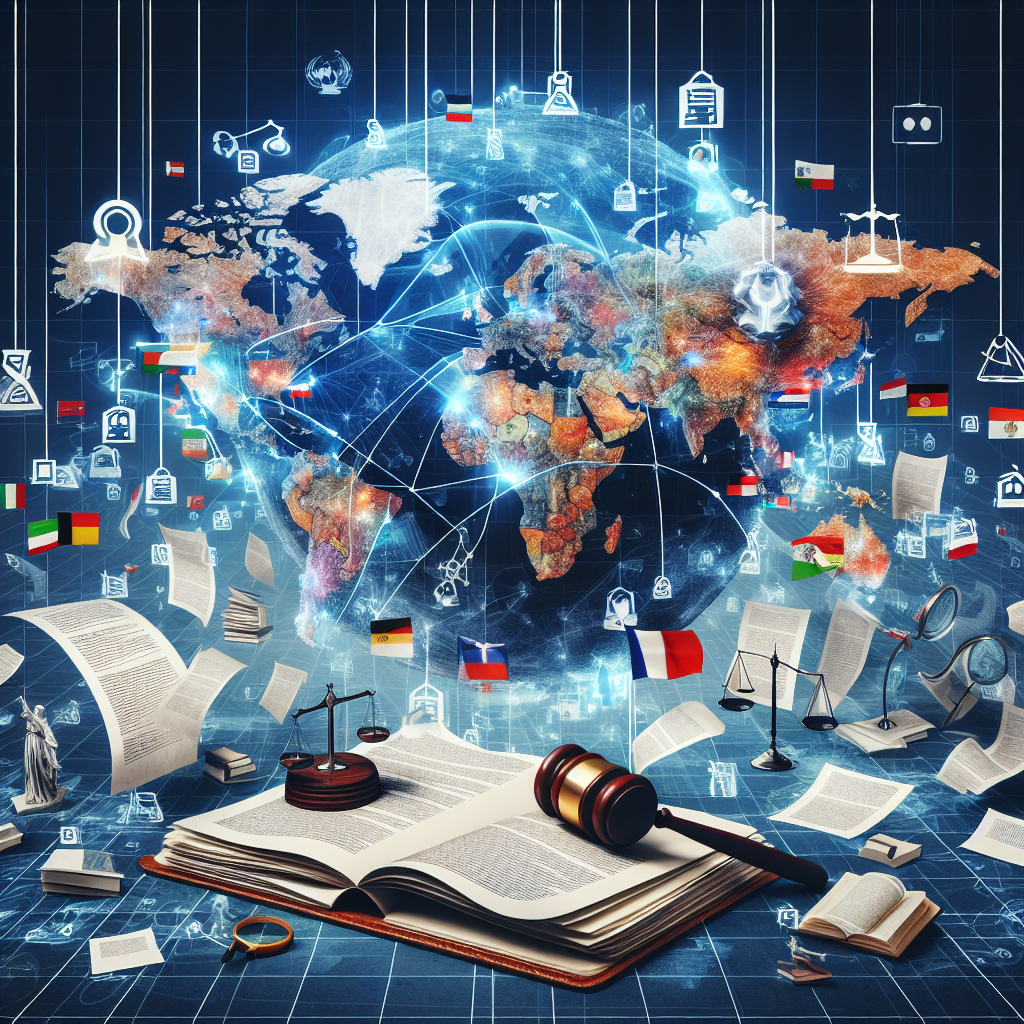How Legal Tech is Streamlining GDPR Compliance for Law Firms
How Legal Tech is Streamlining GDPR Compliance for Law Firms
In today’s rapidly evolving digital landscape, legal tech has become an indispensable tool for law firms worldwide. One of the most significant areas where legal tech is making an impact is in streamlining GDPR compliance. For law firms, ensuring compliance with the General Data Protection Regulation (GDPR) is crucial, not just for protecting client data, but also for maintaining their reputation and avoiding hefty fines. In this article, we will explore how legal tech is reshaping the way law firms manage GDPR compliance effectively and efficiently.
Understanding the Importance of GDPR Compliance
The GDPR, which came into effect in May 2018, has set a new standard for data protection and privacy across the European Union and beyond. The regulation mandates that organizations, including law firms, adhere to strict guidelines for collecting, processing, and storing personal data. Non-compliance can lead to severe penalties, making it essential for law firms to implement robust data protection strategies.
The Role of Legal Tech in GDPR Compliance
Legal tech refers to the use of technology and software to provide legal services and support the legal industry. It encompasses a wide range of tools designed to enhance the efficiency, accuracy, and security of legal processes. When it comes to GDPR compliance, legal tech plays a pivotal role in several ways:
1. Automated Data Management
One of the primary challenges law firms face in GDPR compliance is managing vast amounts of personal data. Legal tech solutions provide automated data management systems that can efficiently handle data collection, storage, and deletion processes. These systems ensure that data is processed in accordance with GDPR guidelines, reducing the risk of human error.
2. Enhanced Data Security
Legal tech tools offer advanced security features that protect sensitive client information from breaches and unauthorized access. These tools utilize encryption, access controls, and regular security audits to safeguard data, helping law firms maintain GDPR compliance and build trust with their clients.
3. Streamlined Consent Management
Obtaining and managing consent is a critical aspect of GDPR compliance. Legal tech solutions can automate the process of collecting, storing, and managing consent from clients. With clear records of consent, law firms can easily demonstrate compliance during audits or inspections.
4. Simplified Data Subject Access Requests (DSARs)
Under the GDPR, individuals have the right to request access to their personal data. Handling these requests manually can be time-consuming and prone to errors. Legal tech platforms streamline DSAR processes by automating request tracking, data retrieval, and response generation, ensuring timely and accurate compliance.
5. Comprehensive Compliance Audits
Regular audits are essential for maintaining GDPR compliance. Legal tech provides tools that facilitate comprehensive audits by monitoring compliance activities, generating reports, and identifying areas for improvement. These insights enable law firms to stay ahead of compliance requirements and mitigate potential risks.
Choosing the Right Legal Tech Solutions
To effectively streamline GDPR compliance, law firms need to choose the right legal tech solutions tailored to their specific needs. When selecting a solution, consider the following factors:
- Scalability: Ensure the technology can accommodate the firm’s growth and evolving compliance requirements.
- Integration: Look for solutions that seamlessly integrate with existing systems and processes.
- User-Friendliness: Opt for intuitive platforms that require minimal training for staff.
- Vendor Reputation: Choose reputable vendors with a proven track record in compliance technology.
Conclusion
Legal tech is revolutionizing the way law firms approach GDPR compliance, offering innovative solutions to automate processes, enhance data security, and ensure adherence to regulatory requirements. By investing in the right legal tech tools, law firms can not only achieve compliance but also gain a competitive edge in the digital age. As the regulatory landscape continues to evolve, staying informed and proactive in adopting legal tech will be crucial for law firms aiming to thrive in a data-driven world.
For law firms looking to streamline their GDPR compliance efforts, embracing legal tech is no longer optional—it’s imperative. By leveraging these advanced technologies, firms can protect their clients’ data, uphold their reputations, and navigate the complexities of data protection with confidence.































































































































